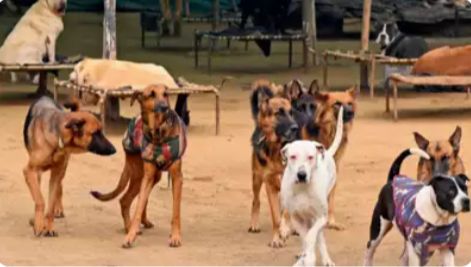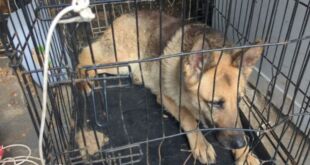On January 2, an aggressive pit bull, a breed known for fighting, viciously attacked an 18-month-old girl while she slept on her grandfather’s lap in Burari, north Delhi. The incident resulted in severe injuries and fractures. The owner of the dog was finally booked 18 days later after a video of the attack went viral.
Another incident occurred on January 9 in Shahbad Dairy, north Delhi, where an American Bully, another powerful guard dog breed, attacked a seven-year-old girl playing outside her home. Despite filing an FIR, no action has been taken against the dog’s owner.
Shrikant Bhagat, the girl’s father in Shahbad Dairy, expressed dissatisfaction with the lack of police action and raised concerns about the community’s safety. He questioned why someone could keep such a ferocious dog breed without a license and why the owner wasn’t penalized for leaving the dog unattended.
Bhagat emphasized the importance of controlling the breeding of such breeds and holding irresponsible owners accountable.
Experts in the field, including veterinarians, animal activists, and kennel club members, argue that while unethical breeding contributes to the problem, the owners’ primary responsibility for dog aggression lies.
Dr. Abhishek Dabar, a veterinarian and dog expert, explained that behavioral issues are often associated with owners needing more time with their dogs or providing proper training. He highlighted the significance of developing a pet-master relationship to instill discipline in canines.
In Delhi, aggressive pedigree breeds like Rottweilers and pit bulls are unethically bred and kept by inexperienced owners as status symbols. Experts point out that breeders and owners, lacking skills and awareness of animal behavior, are responsible for such incidents.
The Municipal Corporation of Delhi is tasked with issuing licenses to breeders and sellers under the Prevention of Cruelty to Animals (Pet Shop) Rules, 2018. However, there needs to be more laxity in enforcement.
The Delhi State Advisory Board for Animal Welfare is also involved in licensing, but manpower limitations hinder inspections to ensure compliance.
Geeta Sheshamani, vice president of animal shelter Friendicoes, emphasized the need to reprimand irresponsible pet owners and criticized the poorly implemented licensing process. She highlighted the importance of following specific practices to meet the energy needs of large breeds.
Yogesh Tuteja, a Kennel Club of India member, emphasized that any breed’s behavior depends on how it is raised and urged responsible ownership.
Animal welfare activist Ambika Shukla highlighted the negative impact of unethical breeding practices on dogs, leading to genetic disorders and various health issues. Shukla criticized breeders in India for prioritizing profits over the well-being of the animals.

 DogExpress
DogExpress


















 in Chandigarh, India.
in Chandigarh, India. 
